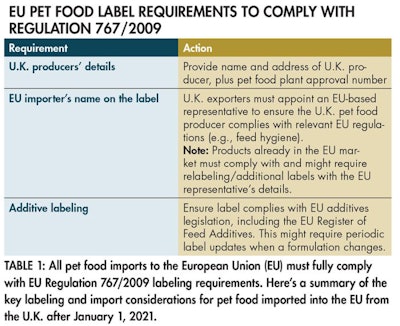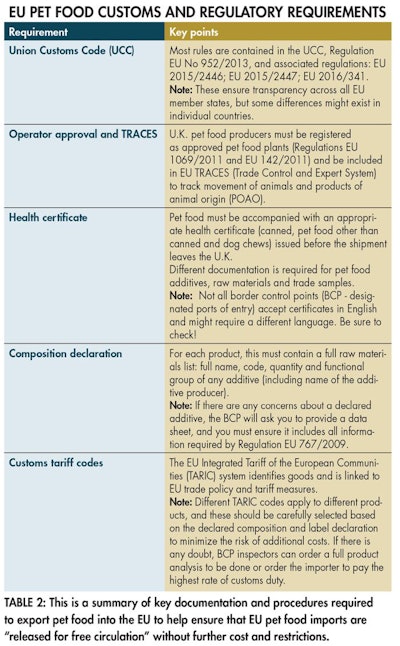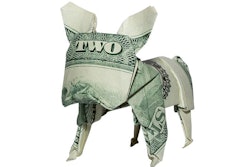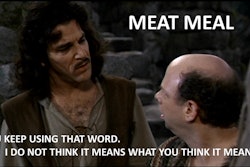
On January 31, 2020, the United Kingdom (U.K.) officially left the European Union (EU). Although until the end of 2020 EU legislation will still apply, that will change starting January 1, 2021, when the rules for trading between the U.K. and EU will change.
This scenario might affect the many British pet food business operators who, over recent years, have been looking to the European continent in search of new sources of growth. It could have a significant impact on the ability of British pet food brands to export their products to mainland Europe.
If we consider that today, the U.K. pet food industry exports 60% of its production, the majority to the EU market, and imports the vast majority of its raw material, the reimposition of tariffs and the changing of the rules of trading will have a huge impact. It is relevant to highlight that U.K. producers depend on import and export today with the relative simplicity of loading products onto a lorry.
‘No-deal’ Brexit has implications for pet food
2020 should have been the year dedicated to negotiating the future terms of the deal that might rule the trading relationship between the EU and U.K. Such negotiations, however, have been constrained due to significant differences in the U.K. and EU positions over areas like fisheries and business subsidies. At the time of this writing in early November 2020, no trade deal has been agreed on and is arguably unlikely to happen with limited time available to the end of the transition period.
This impasse raises the specter of a “no-deal” Brexit and has commercial implications for the pet food sector as World Trade Organization rules would apply, meaning different customs duties on kibble, wet pet food, snacks and treats. Moreover, a no-deal Brexit risks triggering additional COVID-19 supply chain disruptions as well as additional costs for businesses and pet owners.
To reduce Brexit-related logistical and commercial risks in the pet food sector, it is important that we prepare now. After the transition period, the U.K. government will implement import controls on goods moving from the EU to Great Britain and vice versa, in a manner similar to the U.K.’s current trading arrangement for rest of world (RoW) goods.
As a result, significant changes will come into effect, and U.K. pet food trade to and from the EU will be subject to regulatory controls and customs formalities, including tariffs and duties. All pet food operators who wish to give continuity to their businesses across the U.K.-EU borders will need to take account of these and adapt accordingly.
Due to the complexity and diversity of pet food and treats, it is beyond the scope of this article to provide an exhaustive list of all requirements. The objective is to provide a general overview and sources of information for the most relevant documentation and procedures required after January 1, 2021. (See Tables 1 and 2.)

U.K. pet food producers: Prepare now
To ensure continuity of trade between the U.K. and EU, in general terms, UK pet food producers who export to the EU or are planning to should prepare now for radical changes in areas including:
- Nominating a European representative
- Labeling
- Traceability
- Risks – such as mycotoxins, aflatoxins, pesticides, Salmonella – associated with import of high-risk feed
- Customs duties and procedures
First, U.K. pet food producers will be required to nominate a third-party representative who is also holder of an EU feed business operator license. The details of this company and their EU license number must appear on the pet food products so they can be offered for sale within the EU.
For products being subject to customs clearance for the first time, these will be checked with increased scrutiny for compliance with every requirement of regulation EU 767/ 2009. This process might take up to 20 days or longer due to additional workloads associated with Brexit.
Much of the discussion on future trading arrangements lies with tariffs and nontariff barriers that are likely to have financial impact on U.K. and European operators. These include the requirement for export health certificates, the requirement to prove the origin of the raw material used in pet food and the need for veterinary inspection at the border.
Financially, depending on the composition and customs code, custom duties and tariffs could result in additional costs of up to €1000 (US$1,186)/ton or 9.6% of the tax base. Further costs include emptying containers/lorries, customs/veterinary inspection, support at the point of designated entry and potential product losses through damage. Besides adding cost, all of these will take time and require enough qualified personnel familiar with the current procedures.

How to minimize risks
Even if a trade deal is reached, its conditions are today unknown and unpredictable. While this uncertainty exists, U.K. and EU food and pet food operators have received letters from governmental departments (e.g., the Italian Ministry of Health and U.K. Food Standards Agency) advising them to prepare for changes that will be effective from January 1, 2021.
Despite trade deal uncertainties, to minimize the risk of unexpected costs, excessive delays and disappointed customers, remember the simple message: “If you fail to plan now, you are planning to fail after January 1.”
Key dates to know about Brexit
- June 23, 2016: U.K. referendum to leave the EU, results in a “leave” vote
- March 29, 2017: U.K. formally triggers Article 50 of the Lisbon Treaty starting the “Brexit” process, including negotiations on future relationships including a trade deal
- January 31, 2020: U.K. leaves the EU and enters a transition period
- December 30, 2020: Brexit transition period ends and cannot be extended beyond that date
















